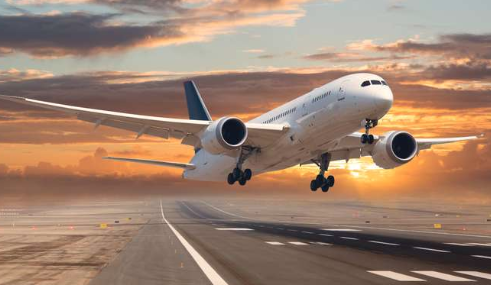New York – US-based corporate travel managers are bracing for hefty price tags in the “new normal” travel programme when business trips restart, while industry observers stress that the ecosystem and standardisation of services across the entire supply chain will be critical.
These highlights were shared during the first CTC – Corporate Travel Community Online Masterclass webinar titled Towards The “New Normal” Travel Programme last week, which saw more than 900 attendees from 50 countries.
Although so much about the “new normal” is still not known, speakers were unequivocal about companies having to be dynamic and to adapt to whatever unfolds, stressing that there were opportunities for those who are able to meet the needs of an increasingly scrutinising consumer where safety, security and health have become even more important.
With business travel post-Covid-19 based on “paying for safety”, the discussion posited that air tickets could skyrocket to US$10,000, but it was uncertain what the tolerance is.
Peter Harbison, chairman emeritus, CAPA – Centre for Aviation, is optimistic beleaguered airlines operating in big domestic markets will bounce back quickly, but it would be more difficult for international carriers with grounded longhaul fleets and smaller players, resulting in fewer and more expensive services, and fewer direct routes.
Keeping in mind social distancing and other Covid-19 prevention measures, which might still be in place, Harbison pointed out that air travel would require “a significant amount of standardisation” if travellers have to transfer from one airline to another, adding that “governments have a massive and important role to play in agreeing on standards that are acceptable”.
He commented that travel on a global basis would be “lumpy” and it would be necessary to renegotiate a multilateral agreement.
Eric Bailey, global director travel, venue source & payment, Microsoft, is expecting “some big changes at how we look at things” in the “new normal”.
“(While the airlines could) centralise and control how people can feel safe… and airlines do better than what people think, the worry is about the in-between transition, the random driver, the random car,” Bailey said, adding that having no control over the trip process is what makes travellers the most nervous.
Bailey shared that travellers want to know travel is safer, and everything about the trip – from the seat number to the hotel room assigned.
Bailey continued: “Policy will not change if someone has to travel… if it is absolutely essential, (but airlines just need to figure) how to balance it out (based on economic and health considerations as Australia is different from China or the US).”
He shared that discussions for Microsoft-only hotels with no other guests apart from its employees and a touchless door-to-door experience – from home to airport to hotel and back – were being looked into.
However, the availability of a Covid-19 vaccine would create a very different “new normal”, according to Bruce Finch, newly-retired former senior director, global travel & meeting services, Autodesk.
Finch also questioned how an organiser of a 12,000-delegate event which takes four years to plan can ensure staff and suppliers are protected, and if organisers would have to provide personal protection equipment on site.
Meanwhile, Bailey believed companies are likely to adopt a strategy where 50 per cent of meetings will still be face-to-face and the rest online, but the model will be more “personal” than what is available today.
In reply to a question posed by moderator, Benson Tang, CTC’s executive director, as to whether RFPs would become more stringent, Bailey said it was “unknown still” for the June/July negotiations as “nobody has answered the questions”.
Microsoft would be asking for much more detail, Bailey shared, but admitted that the company itself did not know what the new criteria are post-Covid-19, or whether in two years, everyone expects social distancing and touchless experiences to continue.
With the Covid-19 pandemic making safety and health core principles, the discussion agreed that travel managers would have to be dynamic and adjust to changing regulations and new demands.
Suppliers that can cater to the needs of the “scrutinising consumer” have huge money-making opportunities, and Finch said new supplier contracts will see travel managers asking interesting questions, although nobody yet knows what they are.
With the rise of demanding consumers with safety and health concerns, Harbison believed more companies will tackle the issue with more individual travel and the use of corporate jets and private services.
On the role of TMCs, Bailey said nobody knows how they will change, but they must go beyond just booking the air ticket, hotel and transport.
On a positive note, Finch said the “new normal” could spur demand for NDC (New Distribution Capability) if it can perform more “progressive tasks”, with Harbison adding that if air travel is high-risk, NDC would become more important for full-service carriers in the corporate travel segment.
Harbison pointed out that the rich content of NDC would have a big leg-up and enhance a full-service airline’s competitive edge, while the role of LCCs would be redefined and become a discretionary market.
On other issues discussed, Bailey said risk of data, personal safety and health were going to become bigger, “billion-dollar issues”, adding that corporates would be willing to pay huge premiums if they find “real value” in a service that nobody else offers.
Finch opined that companies wanting to maintain a high level of duty of care would have to pick up the slack if travel insurance could not provide wider coverage in a more risky travel landscape post-Covid-19.

